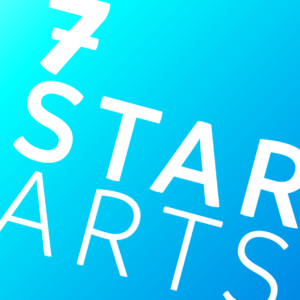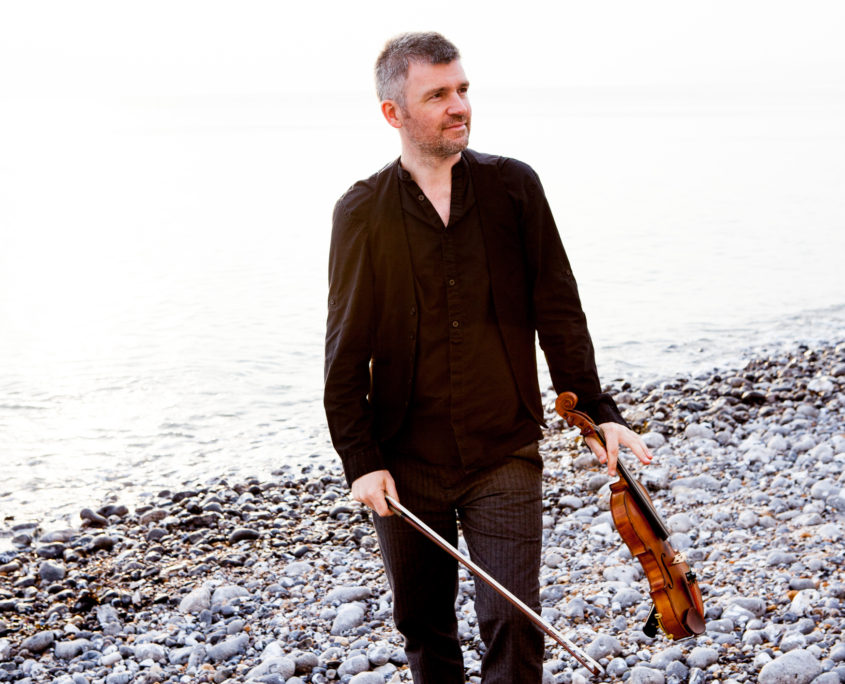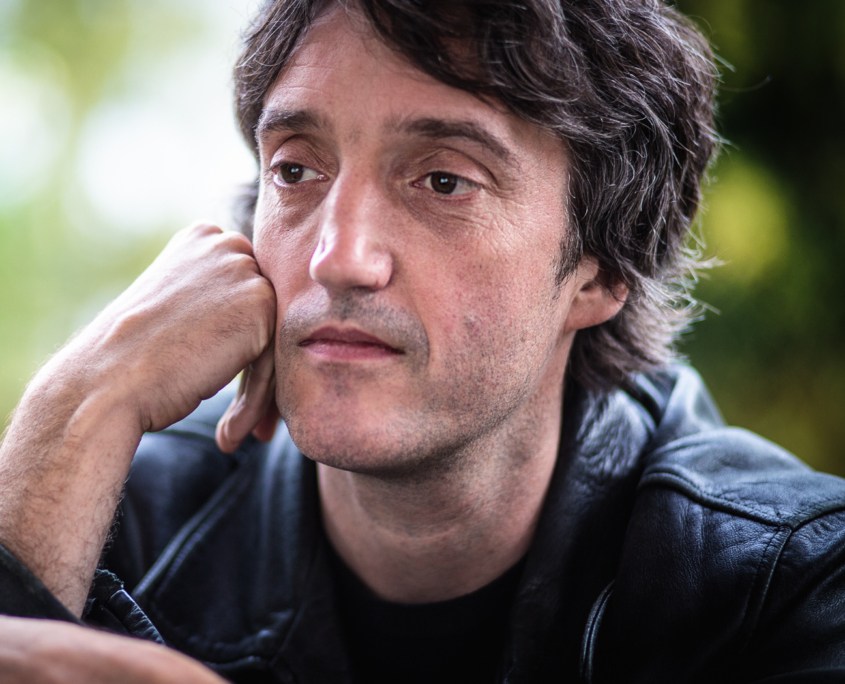“I’m a balladeer at heart” – interview with Matthew vanKan
Ahead of his Nat King Cole Centenary Celebration at The Jazz Room at The Bull’s Head, we caught up with singer-songwriter Matthew vanKan to find out more about his musical influences and inspirations…..
Matthew vanKan Nat King Cole Centenary Celebration is at The Bull’s Head on Monday 24 June. BOOK TICKETS
Who or what inspired you to pursue a career in music?
I grew up singing and spent years gigging through my 20’s at restaurants and bars, writing and recording my own music and hoping for a record deal that never came. I hadn’t discovered jazz then and it wasn’t until my 30’s that I did. After years of managing a travel company in Brighton I decided to pursue music again for fun and joined a community Gospel Choir. It was such a powerful experience performing again after years of abstinence so after a big concert, when the dust had settled I took to the streets of Brighton with my busking amp and backing tracks. I chose a selection of jazz songs because I felt so comfortable singing them and didn’t feel like some ‘old guy’ trying to rekindle a teenagers dream of being a pop star. It seemed to work. Passers by would pick up my business cards and then a few days later people would call to say they’d seen me singing in The Lanes of Brighton and was I free to come and perform at their wedding, birthday or garden party. I was working full time in an office back then but after a few months of gigging every Friday, Saturday and Sunday I decided to go part-time at work. A few months later I was offered a weekly residency at The Savoy hotel in London (after badgering the booking agent on a weekly basis) and decide to hand in my notice and follow my dream (again). Second time lucky I guess!
Who or what have been the most important influences on your musical life and career?
My Mum, grandmother and church… My Mum because of the look she gets in her eyes whenever she watches me sing. The same applies to my Grandmother who always used to say “you can’t hear the words” when listening to ANYTHING modern. In particular I love Nat King Cole’s articulation. When I was listening intently to his music my Grandmother’s words echoed in my head. You can always understand what Nat King Cole is singing about as his diction is perfect! Church was a big influence because I would sing with the choir there every Sunday throughout my childhood and teenage years. I can’t say I paid much attention to what the priest was talking about half the time BUT I absolutely loved the music AND the acoustics.
What have been the greatest challenges of your career so far?
That’s a really good question and not one I’ve given that much though to as I prefer to focus on moving forward rather than what’s held me back. I guess it’s all a bit of a challenge. Trying to make a living doing something you love is a bit of a double edged sword. You have to think commercially about something you’re so passionate about. People often think that musicians are happy performing for nothing (or very little) because they’re doing something they love to do. In some cases that’s true but in order to be successful at making a career out of music I think you have to learn to treat your music like a business and not be afraid to talk money, fees for your fellow musicians, riders and reasonable performance times etc. I manage myself and think I learnt a lot when I was employed as the manager of the travel company in Brighton. I’d be lost without my spreadsheets. Ha ha!!
I guess the other challenge for me personally has been to stop caring so much about what other people think of me. It was always something I struggled with in the past (for many reasons – bullying at school one of the main factors) BUT I now truly believe that I’m pursuing something that I’m good at, it’s very authentic and honest for me and I accept that I’m not everybody’s cup of tea but that’s OK. I don’t need EVERYONE to rate me anymore or approve. I just love the fact that I’m always learning and evolving as a performer. That will never get tiring.
Which performances/recordings are you most proud of?
Mmmmmm. I hate recording and haven’t put myself in the studio as much as I should have. It’s something I need to overcome as I’ve been writing my own songs over the last year or so and feel I’m working my way (slowly) towards an album. I gig a lot in noisy bars and clubs or private events where my music isn’t the primary focus. I think I’m always most proud following a show at venues like Pizza Express Jazz Club, The Crazy Coqs and hopefully post Bulls Head. It’s such a special moment in time having the company of an audience at a venue that is focused on listening intently to what you have to say and sing about. I’m such an open-book on stage, often exposing myself emotionally far more than I had planned but it’s so exhilarating doing that. I hope my honesty adds weight to my interpretation and delivery of the songs I choose to sing. I want people to know what and how much the lyrics meant to me otherwise I’m just regurgitating a bunch of jazz standards and not adding anything of my own.
Which particular works do you think you perform best?
I’m a balladeer at heart so love to get my teeth stuck into a love song that tugs at the heart strings. There’s a tune written by Howard Barnes, Harold Cornelius and Dominic John called ‘A Blossom Fell’ that was published in 1954 and a hit for Nat King Cole in 1955 when it was released by Capitol Records. To be honest I didn’t know the song before I’d started planning this Nat King Cole Centenary Celebration. We’d only managed to run it once in a rehearsal but when I performed it for the first time at The Hospital Club in Covent Garden I got really emotional which took me a little by surprise. I think I just got lost in the lyric and it hit me how beautiful and poignant it was. I included the Prince song ‘Sometimes It Snows In April’ in my last show ‘Seasons Of The Heart’. A dear friend of mine had recently taken his own life so I dedicated the song to his memory and got completely engulfed by my feelings right there on stage but somehow managed to power through and pour all of that into my performance. That’s what music and singing is all about for me. I have to find something personal that I can bring to the songs I’ve chosen.
How do you make your repertoire choices from season to season?
Well this Nat King Cole Centenary Show was an obvious choice because I’ve always been such a big fan. I celebrated the music of Frank Sinatra in his centenary year back in 2015 for the same reasons. My show ‘Seasons Of The Heart’ was inspired by a song I’d written called ‘Before It’s Begun’ which is all about a father trying to make sense of and explain the reasons behind acts of terror to his young and still so innocent son. I’d also written another song called ‘Allow Me To Introduce Myself’ which was about an imaginary meeting between me and my Dad who I’ve never met. I wanted to explore all the different facets of ‘love’ and we included a string quartet into the arrangements for the first time. There’s always a personal reason behind my inspiration for any show I create.
Do you have a favourite concert venue to perform in and why?
Can I have two? Pizza Express Jazz Club in Soho and The Crazy Coqs at Brasserie Zedel in Piccadilly. They both have fantastic sound systems, good lighting, a music loving audience sat in a cabaret setting with tables and chairs and waiting staff. It’s quite an old-school concept these days as people are so used to going to larger, all standing music concerts. The audience at Pizza Express and Crazy Coqs are asked to switch off their phones and respectfully refrain from talking during the show. It all helps to set things up perfectly. Hopefully one day I’ll be able to include Ronnie Scotts and The Royal Albert Hall but I’m still waiting for that telephone call!
What is your most memorable concert experience?
Tony Bennett at The Royal Albert Hall. Towards the end of his concert he put his microphone down on top of the piano, stood centre stage and sang ‘I Left My Heart In San Francsico’ a cappella. He was 90 years old at the time and his un-amplified voice filled the concert hall. Just incredible! I hope I’m still doing this in my 90s!!
As a musician, what is your definition of success?
Earning a living from music is an obvious one but there are so many little successes to enjoy along the way. A sold out show, completing a new, original song, a new collaboration, finally nailing the melody of a standard I might have been struggling to learn, finding new notes to sing within songs I’ve been singing forever, discovering a new part of my voice or gaining more control of it, improving, learning. It all adds up and keeps me moving forward.
What do you consider to be the most important ideas and concepts to impart to aspiring musicians?
I’m not sure I’m qualified to answer this question. I still feel like I’m right at the beginning in many ways. I discovered jazz in my mid 30s and I’m still a student in my eyes. Maybe I should be reading the answers to this question left by others on your blog! Ask me again in 10 years and I might have a better answer 🙂
Where would you like to be in 10 years’ time?
Making a guest appearance at The Royal Albert Hall or on Graham Norton’s sofa alongside a huge Hollywood actor or two being interviewed because a song I’ve written and recorded has been used on a movie soundtrack.
What is your idea of perfect happiness?
Lying by the pool in the sunshine on holiday with my beautiful family.
What is your most treasured possession?
I read this question and instantly drew a blank. I’ve got some lovely ‘stuff’ but I don’t think I treasure physical possessions particularly. I think I treasure my memories most – that’s why dementia is such a cruel disease and a cause I’m particularly passionate about.
What is your present state of mind?
Happy and excited to finally be performing at The Bulls Head after all these years!



